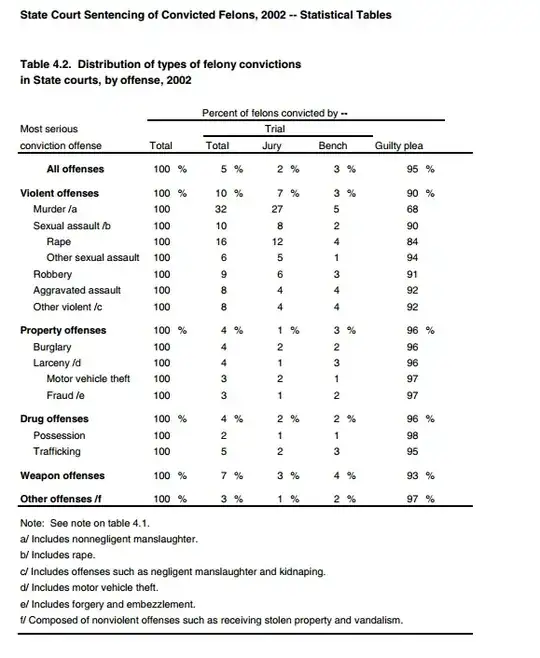According to this article, 95% of inmates in the U.S. have never received a trial, choosing a plea bargain to avoid potentially punitive sentencing if found guilty.
The reality is that almost no one who is imprisoned in America has gotten a trial,” explains award-winning journalist, Chris Hedges, in a recent Truthdig column. “There is rarely an impartial investigation. A staggering 97 percent of all federal cases and 95 percent of all state felony cases are resolved through plea bargaining.” Of those millions who bargained away their right to a trial by accepting plea deals, “significant percentages of them are innocent.”
Is this true? Have any reliable studies been performed to validate this number?
